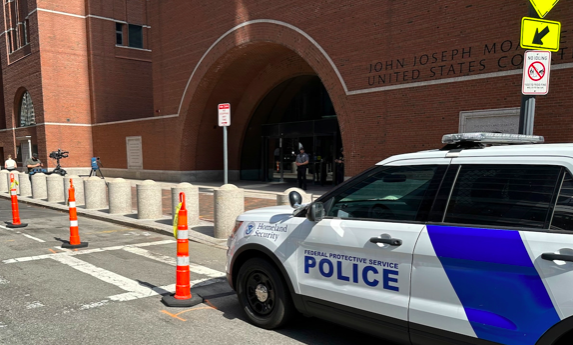On Thursday, in Uniontown, Ohio, 52-year-old Eric Tabaro Nshimiye, also known by the name Eric Tabaro Nshimiyimana, was taken into custody by Homeland Security Investigations (HSI) special agents. This arrest was made on the grounds of allegations that Nshimiye concealed his involvement in the Rwandan genocide nearly 30 years ago, an event marked by horrific violence and widespread atrocities.
Nshimiye faces several charges, including falsification, obstruction of justice, and perjury, as detailed by HSI. According to allegations, he was directly involved in the massacre of Tutsi individuals—men, women, and children alike—employing brutal methods such as a nail-studded club and a machete. Among the heinous acts attributed to him are the murder of a 14-year-old boy and complicity in the sexual assault of Tutsi women.
Following his arrest, Nshimiye’s family fervently refuted the charges through a public statement on social media, defending his integrity and denouncing the accusations as unfounded. They highlighted his absence from the list of perpetrators identified by the United Nations International Tribunal for Rwanda (ICTR) and other investigative efforts post-genocide. The family suggests that these charges have only surfaced because of Nshimiye’s willingness to serve as a defense witness, criticizing the alignment of U.S. federal prosecutors with what they perceive as a politically motivated campaign by the Rwandan government.
This case echoes broader criticisms of the Rwandan government’s judicial practices, particularly accusations of using legal mechanisms to suppress dissent and target the Hutu population globally. The saga of Professor Léopold Munyakazi, extradited by U.S. authorities to Rwanda under similar circumstances, and the controversial use of legal provisions like “genocide minimization” to silence opposition, are cited as indicative of a troubling pattern. Critics argue that such actions, ostensibly in the pursuit of justice for the genocide, may also serve political ends, including the stifling of potential Hutu reorganization or opposition to the current Rwandan regime under Paul Kagame.
The international response to Rwanda’s judicial and political maneuvers has been mixed, with some European countries adopting a more nuanced stance towards the issues at hand. However, the United States is perceived by some activists as lagging behind, entangled in the narratives promoted by a government facing its own allegations of severe human rights abuses, both within Rwanda and in the Democratic Republic of the Congo.
































































